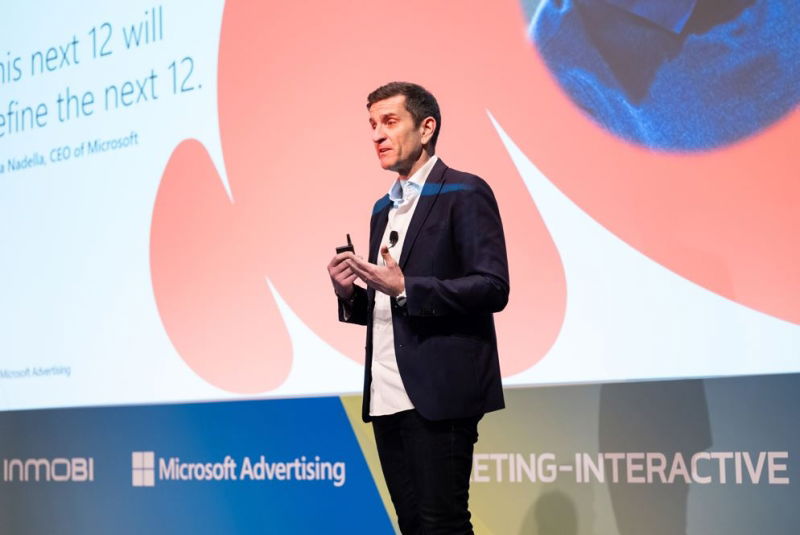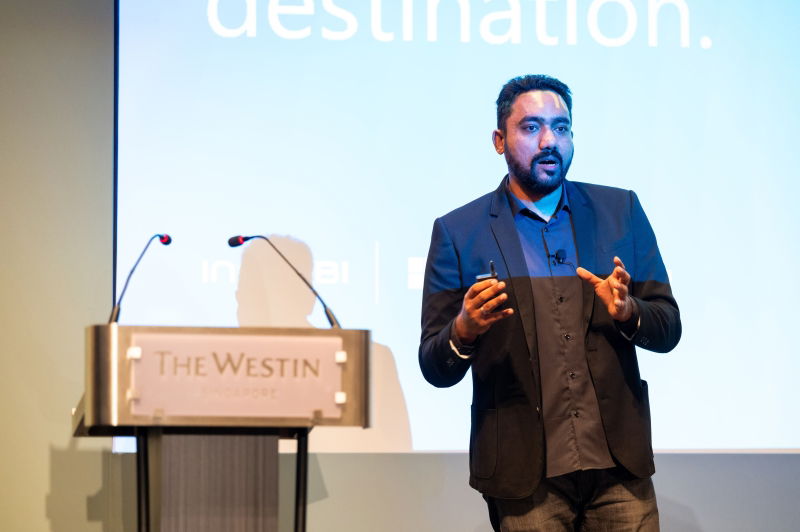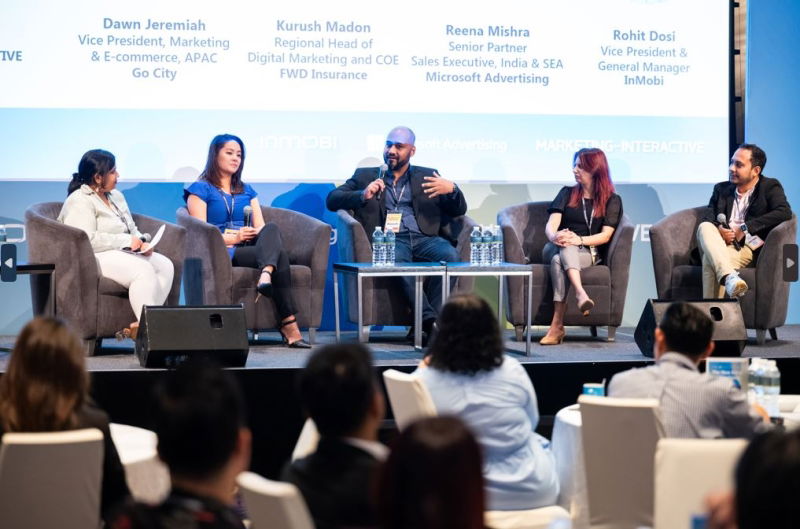
A new era of advertising: The right way to make the most out of AI-led execution
share on
The prominence of AI as a tool to drive efficiency has been well-documented in the marketing industry. In fact, artificial intelligence in the marketing segment grew from $17.48 billion in 2022 to $22.64 billion in 2023 at a compound annual growth rate of 29.5%, according to a recent report on the industry.
During an insights session hosted by MARKETING-INTERACTIVE, Microsoft Advertising and InMobi, Nick Seckold, regional vice president at Microsoft Advertising Asia Pacific quoted Satya Nadella (CEO of Microsoft) and shared that the next 12 years of technological shifts are likely to be defined in the upcoming 12 months. At the forefront of this shift is AI.

According to Seckold, a Microsoft report found that four out of five leaders highlight the need to upskill in to be prepared for the growth of AI. A vast majority (70%) of people in the workforce would also prefer to delegate as much work as possible to AI.
“This is a seismic shift. Generative AI is a defining technology of our time and we are optimistic about what it can do for people, industry and society. We’re committed to making the promise of Generative AI real – and doing it responsibly,” he shared.
Talking about the latest developments and rapid growth in the accessibility of AI, Aditya Varadarajan, INSEA business head for Microsoft Advertising at InMobi said, “The transformative change that has happened in the past year is not the invention of AI, but the fact that AI is now accessible to everyone. You don’t need to know coding or understand tools in detail. You can simply open Bing and search/prompt and you’ll be able to leverage the power of AI.

“The more AI gets included in advertising the more avenues it provides brands and digital marketeers to capture users across the consumer journey. AI will help identify prospective users and as marketeers. All we need to ensure is that we are always present in front of them.”
In the realm of marketing, while conversations around job displacement were initially rampant, many brands have learnt to embrace AI.
One such brand is FWD Insurance, which has taken AI tech by the horns and implemented it across functions such as product discovery engines, conversational commerce, content, and eCommerce.
Kurush Madon, regional head of digital marketing and centre of excellence at FWD Insurance, shared that implementing AI technology has vastly opened up time for his team to optimise and analyse its campaigns.
“Typically, my team spends a large amount of time churning and running our campaigns, and we don’t have enough time to actually optimise or analyse them. I think that’s where AI has become a real boon,” he said.
By harnessing the power of AI, they have witnessed a remarkable transformation in their daily operations. Specifically, AI has enabled them to streamline their campaign management processes, liberating valuable time that was previously spent on routine tasks. He added that with a few clicks, AI tech can generate diverse versions of copy and creative elements, a task that would otherwise consume a significant portion of their schedule if done manually.
This newfound freedom has empowered Madon’s team to delve deeper into campaign optimisation and in-depth analysis. In essence, AI has proven to be a valuable ally, augmenting their capabilities and allowing them to achieve more with greater efficiency.
While the use of AI definitely eases the workload for the team, Madon emphasised that this doesn’t by any means show that human intervention is not necessary as his team still oversees the output.
Seconding that opinion was Dawn Jeremiah, VP of marketing and eCommerce, APAC, Go City, who said that many marketers across Southeast Asia are still at the beginning stages of learning about AI technology and how it can help marketers.
“It’s such an exciting time to be a marketer now, because the possibilities are endless. How I approach AI is to think of it as a junior marketer or an intern first. I’d use the technology to do the basics of research or touch-up, but at the same time I’d still oversee it with a human lens,” she said.
Understanding the technology and having the right frameworks
At the end of the day, to have maximum output and for the technology to work, marketers must be able to define the use case first, said Rohit Dosi, vice president and general manager, InMobi, who was also on the panel.

“It’s important to define the objective or the function that you’re solving for, and then narrow it down to automation and operational processes that you want to solve for,” he said.
He added that there is “no single use case” that fits all industries, but advertisers and agencies are using it across different verticals in a totally different way. But, of course, AI’s limitations do exist, given the pace it is evolving at.
“The technology is literally changing every three months. I think the challenge that we have in front of us is how we can make AI a part of the strategy that companies have,” he said.
Reena Mishra, Senior Partner Sales Executive, at Microsoft Advertising India and Southeast Asia, added that, at the end of the day, it is important for companies and leaders to have a responsible framework.
“I don’t think there is any company who is not talking about AI in the boardrooms; I think every leader is figuring it out. It is the responsibility of a leader to sit with the team, and have the right audits in place about privacy, bias, and many other aspects,” she said.
Mishra added that Microsoft is also taking the conversation around safety and responsible use of AI seriously and has created its own framework.
“The whole idea of this framework is that we are able to talk about trust, security, and being held accountable,” she said.
In conclusion, the rise of AI in the realm of marketing marks an exciting era of possibilities and productivity, and it’s becoming increasingly evident that AI is not here to replace but to empower.
It’s also becoming increasingly evident that marketers must strive to maintain balance between technology and human expertise. When AI is harnessed with purpose and integrated responsibly, it becomes a potent tool that liberates marketers from mundane tasks, providing them with the time and resources to refine strategies, enhance creativity, and ultimately create more meaningful connections with their audience.
The future of marketing is undoubtedly AI-led, but it remains firmly grounded in the wisdom and oversight of marketing professionals who understand its potential and wield it to shape the industry's landscape for years to come.
share on
Free newsletter
Get the daily lowdown on Asia's top marketing stories.
We break down the big and messy topics of the day so you're updated on the most important developments in Asia's marketing development – for free.
subscribe now open in new window
